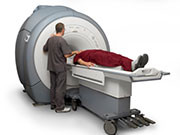USPSTF Recommends CRC Screening for 50- to 75-Year-Olds
Grade A recommendation for 50- to 75-year-olds; individualized decision urged for those age 76 to 85
As HIV Patients Live Longer, Certain Cancer Risks Rise
Anal, colorectal, and liver cancers more common now, researchers find
California Governor Signs Right-to-Die Bill Into Law
Physicians can now prescribe life-ending drugs to terminally ill
Laparoscopic Surgery May Not Be Best Option for Rectal Cancer
Results from two studies show standard surgery to be slightly more successful
Modified SOAP Ups Student Awareness of Health Care Costs
Modification of traditional SOAP presentation to include discussion of value helps medical students
High-Dose Hypofractionated RT Palliative in Head, Neck Cancer
Meaningful palliative effect for 63 percent of patients, lasting for median of 4.6 months
Significant Disparities in Care for Pediatric Retinoblastoma
Extraocular disease higher among Hispanic children, counties with low socioeconomic status
MRI Effectively Measures Hemochromatosis Iron Burden
MRI tested in detection of iron stores in heart, liver and spleen, and pancreas
Taller Individuals Appear More Likely to Develop Cancer
Mortality association remains unclear
FDA Approves New Combo Therapy for Melanoma
Yervoy and Opdivo previously approved individually to treat melanoma



















